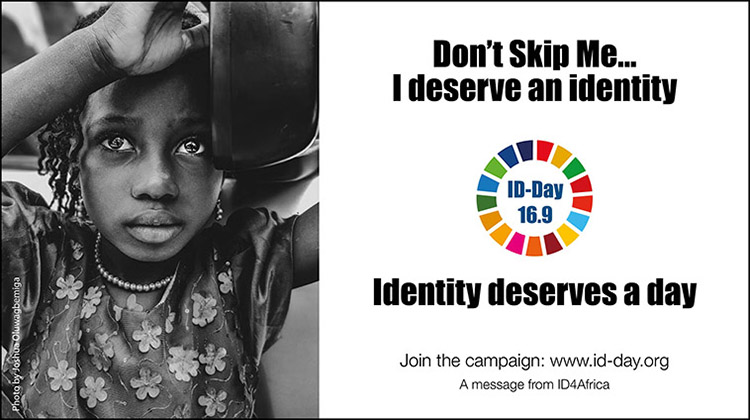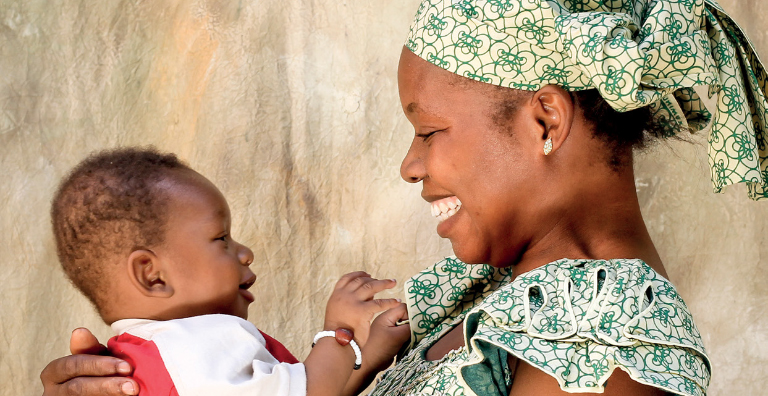Identity is a Human Rights Issue
Editor's Note: This blog was originally published on September 13, 2021 and was updated on September 13, 2022.
Many of us take our legal identity for granted. We use our identities to secure a job, open bank accounts, get tax relief, qualify for government programs or even to rent a car or buy a plane ticket. Legal identity is critical for individuals to seek legal protections and for communities as it underlies the exercise of rights.
Managing legal identity throughout its entire lifecycle is crucial for proper infrastructural planning of a country, and provides a mechanism for increasing social justice, civil rights and economic growth. Yet for many, it’s a barrier for participation in society. It’s estimated that more than one billion people worldwide lack official proof of identity. The lack of a legal identity system limits peoples’ lives and is a global issue.
What is a legal identity?
The definition of a legal identity is the registration and documentation of a person’s existence that enables access to the benefits, responsibilities and rights afforded to them in their country. In short, it’s a set of unique identifying information that includes details like name, date of birth and biometric or numerical data to authenticate the person. A government-issued passport is an example of one such document.
Where does legal identity begin? The answer is with an official birth registration. While many countries do have civil registries in place, one in four children under the age of five don’t legally exist due to a lack of an official registration process.
Legal Identity is a Human Right
Legal identity as a human right is established by international law through a range of declarations and conventions, including the Universal Declaration of Human Rights. Providing a legal identity from day one helps to ensure that rights and access to social services are protected. In fact, legal identity is so important that the United Nations (U.N.) included it as one of its 17 Sustainable Development Goals for 2030.
The U.N. indicates that although progress is being made with global birth registration, that progress has been uneven across countries and it is therefore looking to enhance the quality of civil registration systems. Digitization of services has greatly increased the need for legally verified identification. So much so that the U.N. Legal Identity Agenda Task Force held a round table with the digital identity private sector to help inform changes that impact public management of identities, especially in the context of the legal framework.
As work to improve birth registration and the availability of civil registries continues, campaigns such as ID4Africa’s International Identity Day aim to increase global awareness for the lack of legal identity.
What is International Identity Day?
The idea for International Identity Day came in the wake of several other globally recognized humanitarian days: December 10 is Human Rights Day and June 20 is Refugee Day. International days of observance are an effective and practical way to raise awareness and generate momentum around an issue.
International Identity Day began to develop three years ago. In 2018, ID4Africa, which is a regional Non-Governmental Organization (NGO) movement, initiated a global campaign for the official recognition of International Identity Day on September 16. Why September 16? The 16th of September date is very symbolic. The goal of International Identity Day is to support U.N. sustainability goal 16.9, which calls for legal identity for all — including birth registration — by 2030.
Since the campaign was initiated, more than 100 organizations, including government and humanitarian agencies, campaigners, standards organizations and NGOs have shown their support for the International Identity Day. We at HID have enthusiastically joined them.

Why is HID Observing International Identification Day?
We believe in making it possible for people to transact safely, work productively, learn confidently and travel freely. Legal identity for all is at the core of this belief. Our hope is that, by sharing this information, we can effect change and help provide not only legal identities, but also the consequent services they power for the people who need them.
To learn more about International Identity Day, you can visit the official website at id-day.org. Our Citizen Identity (CID) Business Area is eager to continue supporting this issue both practically — with tools like our civil registry solution to register births — and as part of our company culture and values.
